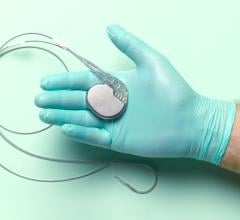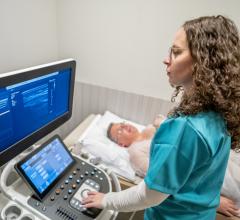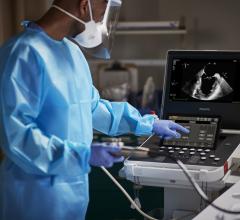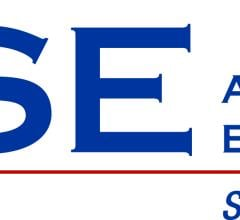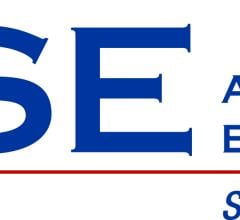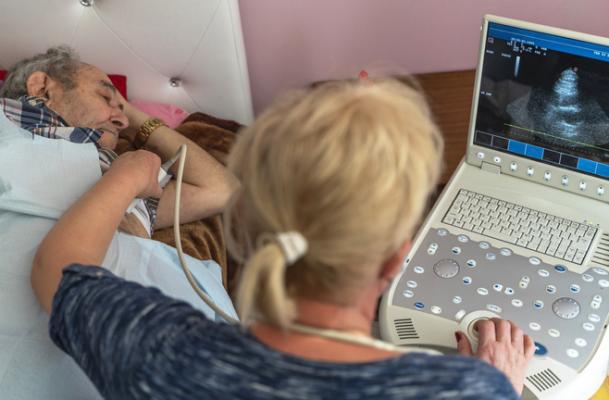
Getty Images
June 25, 2021 – COVID-19 changed everything in healthcare, and a benefit from this pandemic was a surge in innovations in the medical field. One of these is the growth in artificial intelligence (AI) guided medical care. Research is now showing that AI provides the opportunity for frontline providers who do not have specialized training in cardiac ultrasound (novice users) to obtain diagnostic quality point-of-care ultrasound (POCUS) images. This facilitates real-time, bedside assessment and diagnosis of structural cardiac disease and expands its use on a larger scale than possible in the past.
Two research studies presented at the American Society of Echocardiography (ASE) 2021 Scientific Sessions virtual meeting, June 18-21, 2021. Both studies highlight the use of AI by novice users, including nurses and frontline practitioners.
The COVID-19 global pandemic overwhelmed healthcare resources and challenged traditional healthcare delivery models. The illness progresses quickly and can cause impairment of cardiac function. Rapid diagnosis of cardiac complications is essential to providing individualized care to COVID-19 patients. POCUS has the potential to provide this rapid, real-time, bedside assessment. The main limitation of widespread adoption of POCUS in COVID-19 units is the availability of frontline practitioners with expertise in ultrasound.
“Transthoracic echocardiography is the best diagnostic tool to evaluate cardiac function quickly and non-invasively, but it is a skill that can take months, if not years, to master. In dealing with the surge of critically ill COVID-19 patients, we extended cardiac echo expertise to frontline providers so that critical care physicians could make treatment decisions based on their exams. We were able to do that by leveraging machine learning, enabling anesthesiologists and nurse anesthetists to obtain diagnostic quality cardiac images. In doing so, we were able to provide the benefits of cardiac ultrasound imaging on a larger scale than would otherwise be possible,” explained Rohan K. Panchamia M.D., assistant professor of clinical anesthesiology at Weill Cornell Medicine. He was the lead author on prevention "Use of Machine Learning Software to Guide Focused Cardiac Ultrasound Exams Performed by Novices During the COVID-19 Pandemic."
Another compelling study highlighting AI-based POCUS software focused on the quality of AI guided ultrasound images compared to those obtained by conventional echocardiograms. Research titled "Artificial Intelligence-Guided Novice Acquisition of Limited Diagnostic Echocardiograms: An Assessment of Left Ventricular Systolic Function." The study described image quality obtained by untrained nurses utilizing AI-guidance and non-AI-guided sonographers compared with the gold-standard clinical transthoracic echocardiogram in diagnosing abnormal left ventricular ejection fraction.
“Our study will impact the field of echocardiography by showing that with the help of AI guidance, bedside nurses and others without any prior echocardiography experience are not only able to capture diagnostic quality cardiac ultrasounds, but these ultrasounds can be used to detect abnormal left heart function with a similar accuracy to cardiac ultrasounds captured by trained sonographers," explained Francesca Shilati, a medical student involved with the research at Northwestern University Feinberg School of Medicine. "Our data exemplify how AI guided cardiac ultrasounds could be useful in point-of-care or low resource settings where trained sonographers and state-of-the-art echocardiography machines may not be available.”
For more information: ASEcho.org
Related Artificial intelligence Application in Echo and Cardiology:
Northwestern Medicine Introduces Artificial Intelligence to Improve Ultrasound Imaging
New Cardiac Diagnostic Tool Helps Automate Point-of-Care Ultrasound Screening
JAMA Cardiology Article Shows Effectiveness of AI-Guided Ultrasound Software
Mayo Clinic Uses Artificial Intelligence to Help Assess Cardiac Danger From COVID-19
FDA Clears Ultromics Echocardiography AI for Automated Identification of Coronary Artery Disease

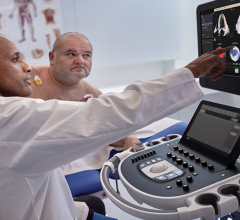
 June 12, 2024
June 12, 2024 

